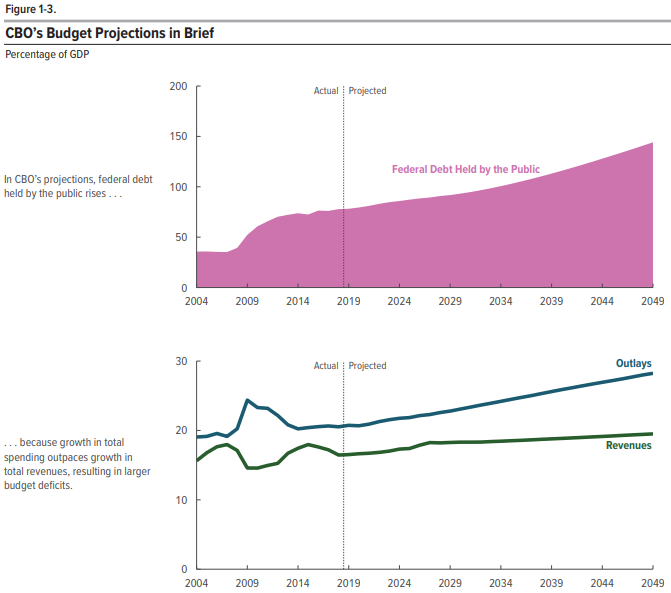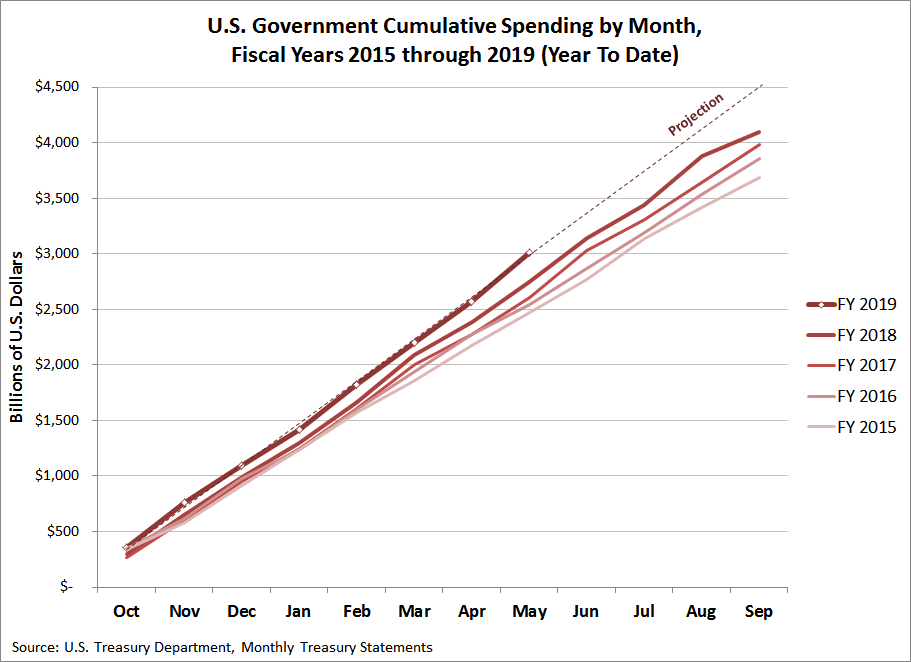Raymond J. March • Tuesday, July 2, 2019 •
Since last September, the Food and Drug Administration has engaged in a “historic crackdown” of the vaping industry to curb an alleged “epidemic” of underage vaping. A short list of its heavy-handed crackdowns included demanding that five e-cigarette companies provide it with comprehensive plans on how they will prevent teen vaping and raiding e-cigarette company headquarters and confiscating their documents. The agency also fined over 1,300 retailers for allegedly selling to minors.
But the FDA planned to intervene further. Then FDA Commissioner Scott Gottlieb also proposed banning flavored e-juices, banning convenience stores from selling e-cigarettes, and imposing age-verification mechanisms for online sales. Although never enacted, vaping industry leaders were preparing for these and other changes to take effect. However, Gottlieb resigned from his position this April. With his departure, the agency’s involvement in regulating the vaping industry has stalled.
But where Gottlieb and the FDA have stopped, the city of San Francisco has continued and doubled-down.
Craig Eyermann • Tuesday, July 2, 2019 •
The Congressional Budget Office has published its Long-Term Budget Outlook for 2019, projecting the U.S. government’s fiscal health will become much worse over the next 30 years in its baseline scenario.
Figure 1-3 from the CBO’s report visually tells the tale of what the agency predicts, where a rising tide of spending funded by new borrowing will cause the publicly held portion of the U.S. national debt to rise from 78 percent of the nation’s GDP in 2019 to 144 percent in 2049, despite rising revenues from taxes.
K. Lloyd Billingsley • Tuesday, July 2, 2019 •
Starting July 1, people buying ammunition in California must undergo the same background check the Golden State has long required for the purchase of a firearm. Californians had been stocking up before the deadline, but those who sought to purchase ammunition in the state capital of Sacramento got a surprise. As staff at Big 5 Sporting Goods explain, since January 1, the city has required a driver’s license and thumbprint for the purchase of ammo.
Both city and state measures treat law-abiding citizens as though they had committed a crime. Those concerned about their Second Amendment rights, and who can get a pizza to their house faster than the police, might wonder what other places have imposed similar measures on ammunition. As Stephen Halbrook noted, Nazi Germany and Nazi-occupied France strictly controlled both guns and ammunition for groups they disfavored. So did the Ottoman Turks, as Peter Balakian showed in The Burning Tigris: The Armenian Genocide and America’s Response. In California, where many Armenians fled, one city is going another way.
Samuel R. Staley • Monday, July 1, 2019 •
July 21st marks the 50th anniversary of the first human step onto the Earth’s moon. Millennials — those born after 1981 — and the post-Space Shuttle GenZ generations may never fully appreciate the accomplishment. Fortunately, the documentary film Apollo 11 can get them pretty close while also reminding Baby Boomers and GenXers just how stunning and risky this technological achievement was in 1969.
Released commercially in March, Apollo 11 is an achievement in filmmaking in its own right. Rather than use voice-overs, narration, or contemporary interviews, filmmaker Todd Douglas Miller and his colleagues reach deep into recently released video and audio archives to bring audiences into NASA’s control rooms at Cape Canaveral (Florida) and Houston. The older video footage was translated into high-resolution digital formats to provide a realism often not seen or experienced in historical documentaries. These artistic choices allow the movie to meet contemporary expectations and sensibilities and draw out the drama of the events as they unfold. Indeed, at moments, the audience will be hard pressed to recognize they are watching decades-old footage.
K. Lloyd Billingsley • Monday, July 1, 2019 •
State officials who show diligence at their job are not easy to find in California. One notable exception is State Auditor Elaine Howle, who has been on a roll of late. As we noted, Howle found that California State University bosses had stashed away $1.5 billion in discretionary reserves while jacking up tuition and hitting up the legislature for more money. In similar style, University of California president Janet Napolitano, a former Arizona governor and Department of Homeland Security boss, was hiking tuition while stashing away $175 million. Howle’s auditors made this discovery despite efforts interference from Napolitano’s office. California’s Department of Motor Vehicles cries out for that kind of investigatory diligence, but legislators and government unions won’t let Howle near the place.
“For the second time in the past 12 months,” Bryan Anderson of the Sacramento Bee reports, “California Democrats declined to open an independent investigation into the state’s Department of Motor Vehicles.” The audit request was “the most sweeping review” of the “motor voter” program and new federal ID requirement.
Chris Conrad • Thursday, June 27, 2019 •
Spy or journalist? Why not both? The Trump administration recently unveiled a new set of charges against Julian Assange, the founder of WikiLeaks, and is seeking to extradite him from the United Kingdom and try him for espionage. Whereas the previous charge from March was narrowly focused on “computer fraud,” a number of journalists have aptly pointed out that the new indictment poses a threat to the First Amendment.
The argument is that the recent indictment could criminalize investigative journalism, as it implies that anyone who merely obtains, solicits, or publishes “national defense” information has committed a crime.
Raymond J. March • Thursday, June 27, 2019 •
About a year ago, President Trump stated that drug prices were “a burden on the American people” and “one of my [President Trump’s] greatest priorities is to reduce the price of prescription drugs.”
He’s certainly been trying.
In 2018 alone, President Trump implemented an international pricing index to keep foreign drug producers from overcharging U.S. patients, targeted drug rebates between producers and middlemen, and issued Medicare Part D plans more power to negotiate drug prices. He also threatened drug providers (multiple times) not to increase prices – via Twitter. Despite these efforts, the year 2019 began with continued price hikes for hundreds of popular drugs.
But President Trump’s persistent failure has not deterred him. More recently, he turned his attention toward lowering healthcare service prices.
K. Lloyd Billingsley • Wednesday, June 26, 2019 •
“The California State University stashed away $1.5 billion in discretionary reserves,” the Sacramento Bee reports, “while raising tuition and lobbying the Legislature for more funds, according to a report released Thursday by California State Auditor Elaine Howle.” According to the audit, “CSU kept legislators, students and the public in the dark about the $1.5 billion surplus, which nearly doubled the cost of tuition from 2008-18.”
CSU Chancellor Timothy P. White called the report misleading and told the Bee, “reserve funds are like a family savings account” and “it is a strong mischaracterization to call it a surplus.” The CSU boss didn’t explain the relation of the hidden $1.5 billion to the increase in tuition. For California students, parents and taxpayers, Howle’s audit may revive some memories.
Craig Eyermann • Wednesday, June 26, 2019 •
Earlier this year, the White House indicated that the U.S. government would spend over $4.5 trillion dollars by the end of the U.S. government’s 2019 fiscal year on September 30, 2019. Unless something changes dramatically over the next three months, the government’s latest Monthly Treasury Statement confirms it will meet that target, as federal spending in FY 2019 will exceed the amount of money spent in FY 2018 by more than 10 percent.

Samuel R. Staley • Tuesday, June 25, 2019 •
Anna, the newest film by French filmmaker Luc Besson (La Femme Nakita, Lucy, Leon: The Professional), is not just another stylish, action drama. The movie is all those and more: a paean to the human spirit and its innate quest for freedom.
The story begins in the late 1980s, the waning years of the Soviet Union. Life is bleak, and Anna Poliatova (Russian fashion model Sasha Luss) is trapped in an abusive relationship. She is diminished and bullied by her boyfriend. She nostalgically remembers her life as the child of a Soviet military officer before being orphaned in a car accident. This memory burns in a will to do more than just survive.
When Anna decides to escape her dreary life, she applies to join the Soviet Navy. KGB agent Alexander Tchencov (Luke Evans, The Hobbit series, The Fate and the Furious, Beauty and the Beast) gives her a better deal: five years as a covert operative and she’s free. Of course, she doesn’t get off that easy. She quickly finds herself mired in double crosses, twisted loyalties, and the CIA’s relentless pursuit to capture her.







